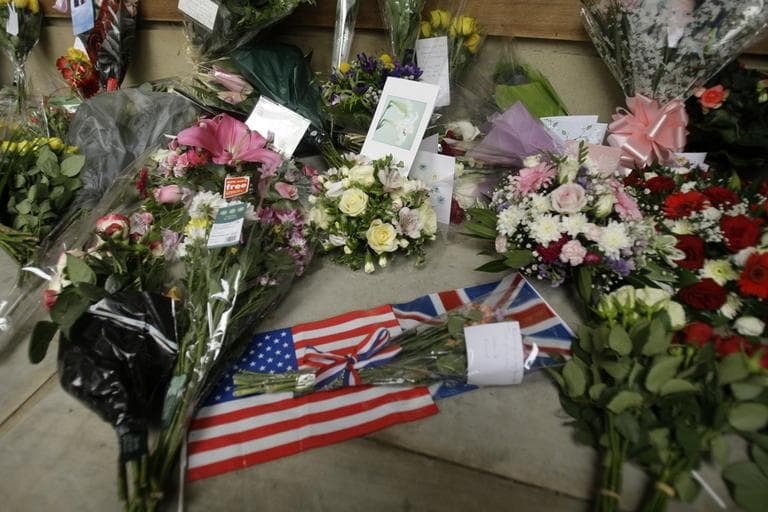Advertisement
9/11 Taught Differently Around The World, Tufts Grad Finds

When Elizabeth Herman visited her former high school, Newton South, a few years ago, she was surprised to find that its new history textbooks already include sections on 9/11. That got her wondering how textbooks in other countries describe the events of September 11, and that topic eventually became her thesis project at Tufts University, where she graduated in 2010.
Now a Fulbright scholar, Herman is continuing her research on how 9/11 is taught around the world. So far, she has analyzed textbooks from 13 countries. When Herman spoke this week with WBUR's All Things Considered host Sacha Pfeiffer, she said she has found that a country's relationship with the U.S. often influences how it teaches about 9/11.
Elizabeth Herman: If the country's relationship with the United States was a little bit more tense, you saw a much more critical view of the United States. So, for example, I was able to analyze the textbooks in Brazil, India and China, and in those three nations relationships with the United States are a little tense. All of those spoke about the audacity of the United States and its actions post-9/11 and the illegality of the war, specifically of the Iraq War.
Sacha Pfeiffer: And what did you find in textbooks published in Islamic countries?
In textbooks in Islamic countries the focus on the assailants was fairly different. In Pakistan, the textbooks completely omit the identity of the assailants. So in the United States and in western countries, you find that the attackers are talked about as Islamic fundamentalists. They're identified as such, whereas the Pakistani textbook reads, "On September 11, 2001, American Trade Center and other strategic positions were attacked by unidentified terrorists." And in Turkey it just omitted their identities as Muslims.
What country presented 9/11 most differently than the way the U.S. presents it?
I would say that the country that presented 9/11 most differently would be China. It mostly spoke about 9/11 as a sign of diminishing American hegemony — and that is not what you see in American textbooks. You see 9/11 being spoken about in American textbooks as a sign of America having been attacked and then having come together.
You found that sometimes there were different words used in different textbooks that seemed like subtle differences, but that you think were significant. For example, describing 9/11 as an "incident" rather than an "attack." How did you find that that made a difference?
I think that that is what is at the heart of all this. It's that when you're thinking about the way that a story is told, you might imagine that one word chosen or substituted for another would not make much of a difference. But when you take all these little changes together, you get a tone that is very well-defined. So, for example, in the way that you would describe the people who executed the attacks of 9/11, whether you call them "attackers" or whether you call them "assailants" or whether you call them "individuals" has very a different connotation and creates a very different image in one's mind when you're reading that textbook.
Why do you think it matters that students are getting different perspectives?
This is one of the first generations that has textbooks that have had an event that happened less than a decade ago written into their history textbooks already; that's new. And so that kind of speed with turning current events into history I think really changes the way the next generation is going to view these events and discusses them. And I think that if students grow up with completely politicized views of these events, then we could run into a lot of trouble.
Do you think there's ever really an official version of events? Doesn't it always change depending on where you live and what your political viewpoint is?
Absolutely. And I think that there's no right way to teach 9/11. I think that the best thing that you can do is provide as many perspectives as possible and help students learn how to synthesize those narratives themselves.
And that's your goal, I believe: to take all the different versions you've come across and create a curriculum that presents all those different viewpoints.
That's exactly right. You know, originally I did set out on this project imagining that I could come up with the right way to teach this in schools. Over time I've realized there's no way to do that. What I'd really like to do is I have all these narratives from all these different countries. If you hand a student 13 different ways of looking at 9/11 from 13 different countries and ask them, "How is this different from how you've learned this in the past? And why do you think it's different? Why do think that Pakistan tells this story one way and Brazil speaks about it a different way? Who's writing this history?" I think that that's the only way that we can actually reach a new understanding of this event.
This program aired on September 8, 2011.
